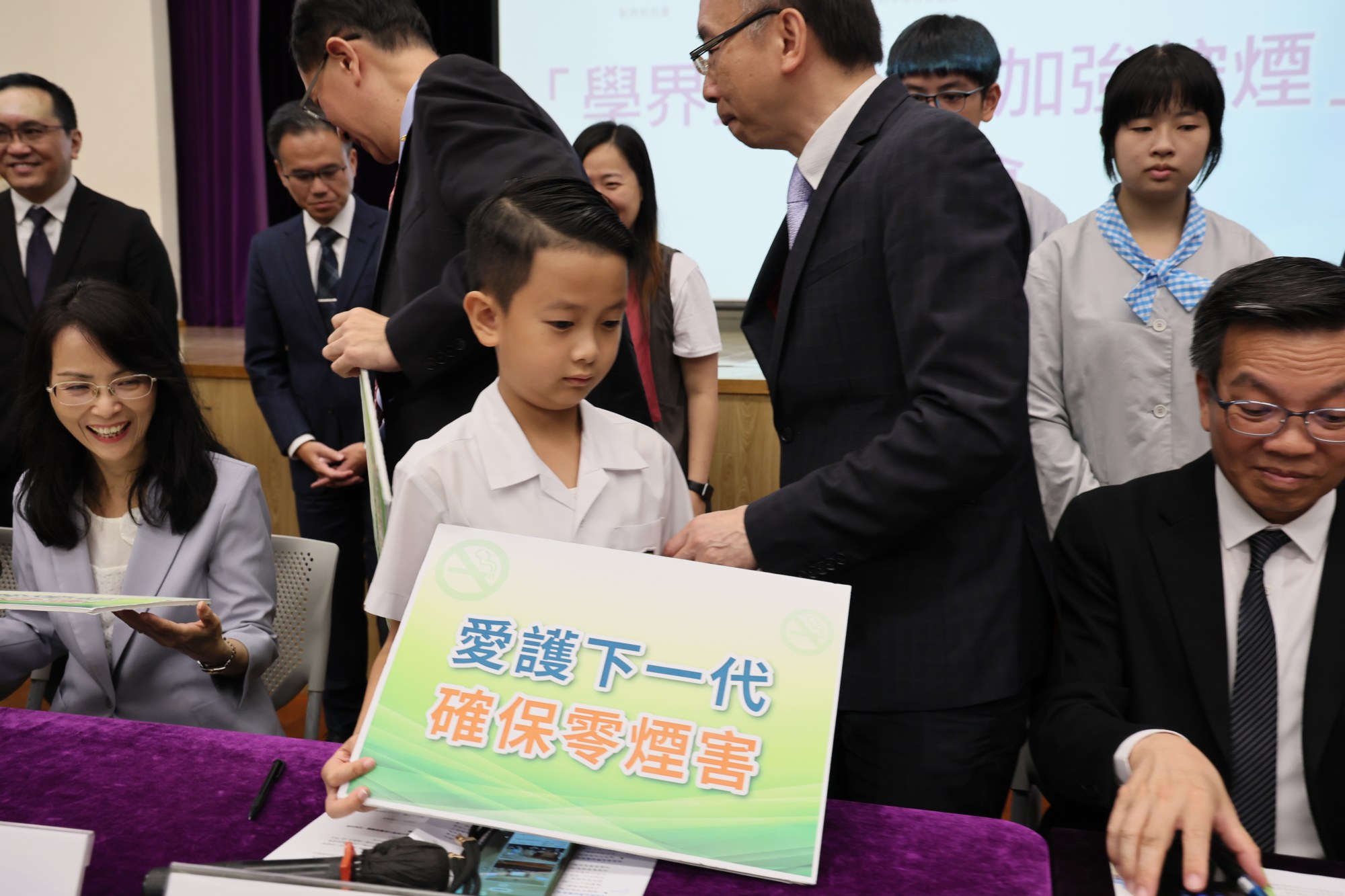
Hong Kong school councils back university medical experts’ call to make city smoke-free
- Hong Kong school councils say tougher tobacco controls a must and back total ban on smoking proposed by HKU experts
- School bodies also asked for expansion of no-smoking areas, a ban on smoking while walking and outlawing flavoured tobacco products
But the 11 councils, which represent primary and secondary levels, aided, government and special schools, on Friday sidestepped suggesting a timetable for a complete ban to avoid the risk of a backlash.
The school councils also said they supported more control measures such as the expansion of non-smoking areas, especially outside schools, banning “smoking while walking”, axing flavoured tobacco products and packaging goods with full health warnings.
Langton Cheung Yung-pong, honorary chairman of the Hong Kong Aided Primary School Heads Association, said the sector understood a total ban on tobacco could not be introduced immediately, but appealed to the government to create a timetable for a smoke-free city.

“I personally recommend a total tobacco ban next year … but we cannot do it in a hurry as it would create a backlash from different stakeholders,” he said, a view backed by the other councils.
He was speaking as the councils announced their stance at Kowloon True Light Middle School in Kowloon Tong.
The organisations made the appeal after the University of Hong Kong [HKU] medical school asked for a complete ban on tobacco from 2030. It also called for the government to increase the tobacco tax to 75 per cent of retail prices in next year’s budget and peg it to the inflation rate.
Hong Kong launched a 2½-month public consultation on tobacco control in July as part of an effort to move towards a smoke-free city.
The consultation period will end on September 30.
A government paper suggested 14 measures, ranging from increasing the tobacco tax to banning people born after a certain date from buying cigarettes.
The government said it hoped the process would help it draw up detailed proposals for the next phase of tobacco control.
Lee Yi-ying, the chairwoman of the Hong Kong Subsidised Secondary Schools Council, said the government should focus on combating viral online tobacco promotions.
She said the present legislation did not prohibit people from buying and using electronic cigarettes.
Lee added that internet e-cigarette adverts attracted teenagers with striking packaging and novel designs.
“The youngsters are easily reached by tobacco promotion on social media platforms. We hope the government will combat online tobacco promotion,” she added.
So Ping-fai, the acting chairman of the Subsidised Primary Schools Council, said non-smoking areas should be expanded to popular gathering places for the young, such as youth centres, playgrounds and parks.
He added young people were being forced to live in a world of second-hand smoke.
So said the young should be “barred” from seeing or touching any tobacco products.
“The government should try to ban tobacco products from being sold in some major areas where the young often go,” he added.
“It could push up the price of cigarettes as it is an effective way to prevent them from using tobacco products,” he said.
Yeung Kam, a mother of a nine-year-old boy and a former kindergarten teacher, appealed to the government to step up education for parents.
“If parents grow up with their kids and pay attention to whom they are making friends with, the chance of them going astray will be minimised,” she said.
HKU carried out a smoking survey among primary and secondary school pupils every two years between 2010 and 2020, with between 27,000 and 60,000 views canvassed each time.
The survey found nearly 60 per cent of schoolchildren were exposed to second-hand smoke at home in 2020, either from family or neighbours, a huge increase on the 33 per cent recorded a decade earlier.

